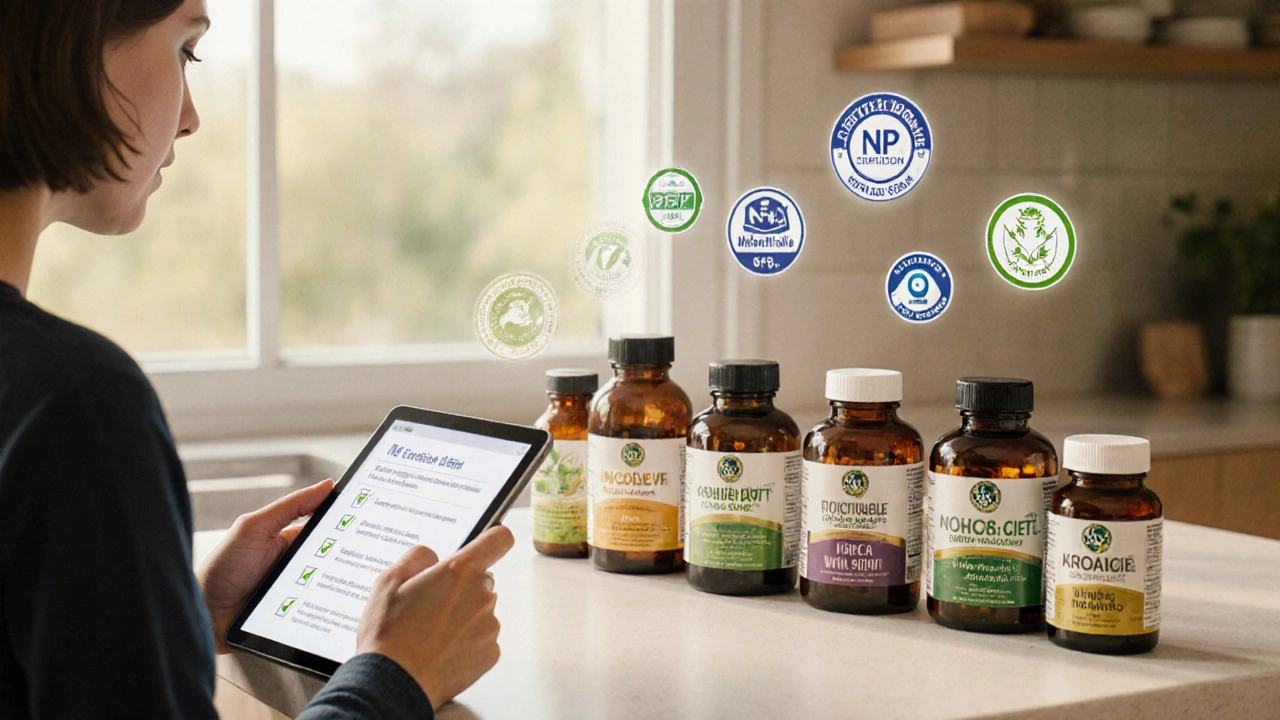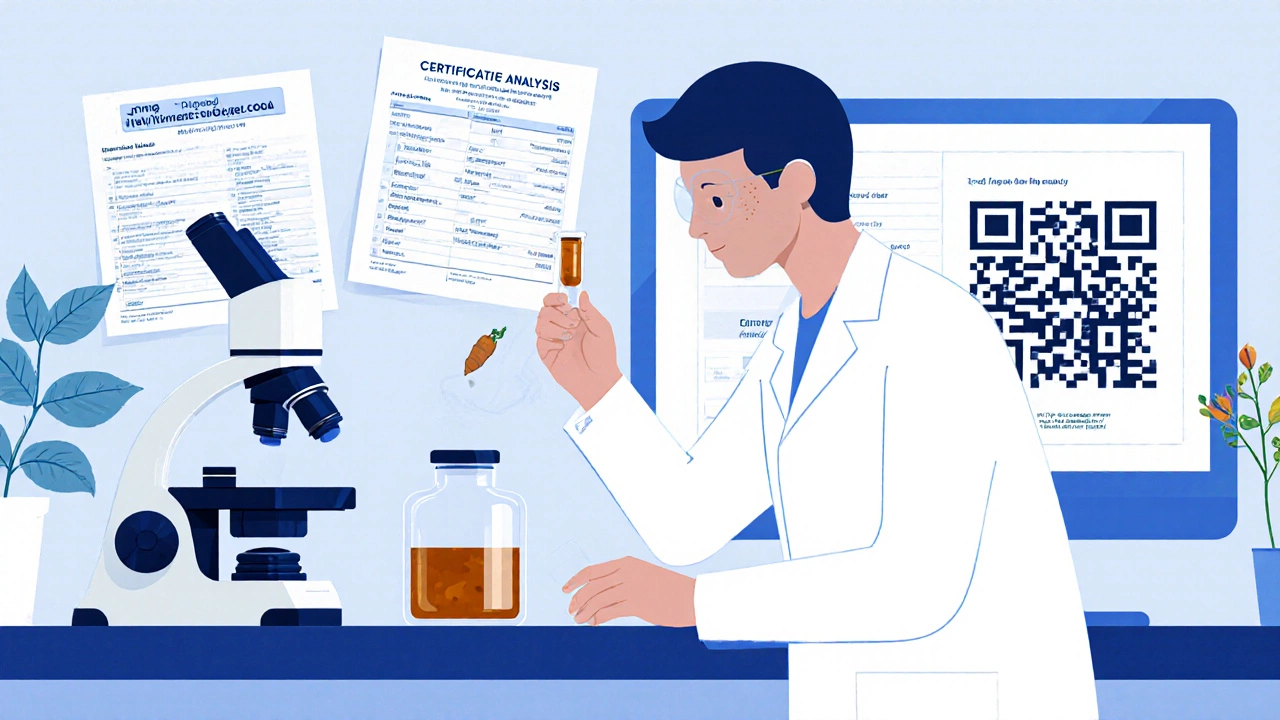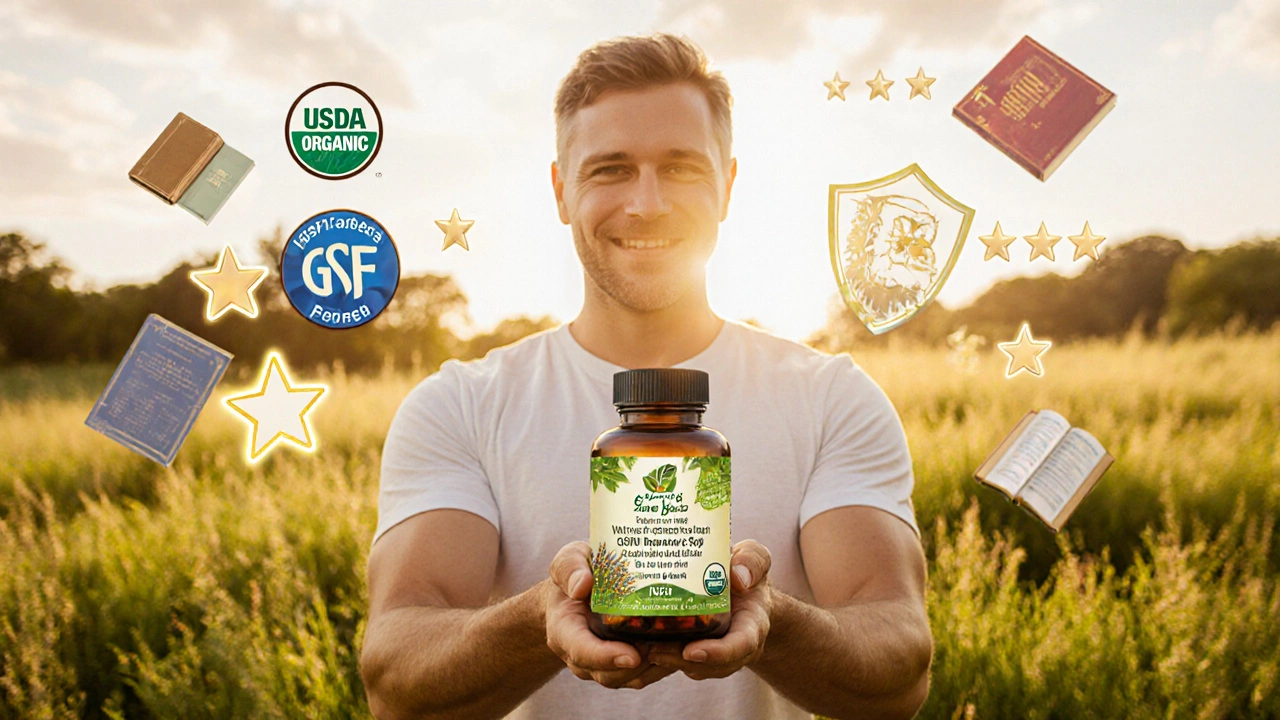
Supplement Brand Verification Tool
Verify Your Supplement Brand
Check if your supplement brand meets key quality standards based on the 2025 reputable supplement guidelines.
Check your verification criteria
Verification Results
Results based on your selections and the 2025 industry standards.
Verification Summary
Key Verification Points
When you’re hunting for a herbal supplement company that you can trust, the sea of options can feel overwhelming. The market is crowded, claims are bold, and not every brand follows the same quality rules. Below you’ll find a practical roadmap to spot the truly trustworthy names, a shortlist of the industry leaders, and a side‑by‑side comparison so you can decide with confidence.
Quick Takeaways
- Look for GMP, NSF, or USP certification - they are the gold standard for safety.
- Choose brands that publish third‑party lab results for every batch.
- Transparency on sourcing, ingredient list, and manufacturing location matters.
- Top 2025 leaders: Organic India, Himalaya Herbal Health, Gaia Herbs, Nature’s Way, NOW Foods.
- Avoid companies that hide testing data, use proprietary blends without disclosure, or sell only through unregulated marketplaces.
How Reputation is Built - Key Evaluation Criteria
Reputation isn’t a marketing buzzword; it’s earned through measurable practices. When you evaluate a reputable supplement company, keep an eye on five pillars:
- Regulatory certifications. The U.S. Food and Drug Administration (FDA) does not pre‑approve supplements, but certifications like Good Manufacturing Practices (GMP), NSF International, and US Pharmacopeia (USP) indicate that a company follows strict production standards.
- Third‑party testing. Independent labs such as ConsumerLab, Labdoor, or Eurofins verify potency, purity, and absence of contaminants. Look for QR codes or downloadable certificates on product pages.
- Ingredient transparency. Full disclosure of botanical names, part of plant used, extraction method, and dosage per serving helps you assess authenticity.
- Scientific backing. Companies that fund peer‑reviewed research or publish clinical trial results show commitment beyond hype.
- Customer feedback. Consistent 4‑star+ ratings across platforms (Amazon, iHerb, company website) coupled with responsive customer service are strong trust signals.
Top 5 Reputable Herbal Supplement Companies (2025)
These brands consistently meet the five pillars above and have earned high marks from both regulators and consumers.
1. Organic India
Founded in 2002 in New Delhi, Organic India blends Ayurvedic wisdom with modern testing. All products are certified Organic by USDA, follow GMP, and publish batch‑specific COA (Certificate of Analysis). Their flagship Ashwagandha and Turmeric capsules are backed by a 2023 clinical study published in the Journal of Ethnopharmacology.
2. Himalaya Herbal Health
Operating out of Bangalore for over 90 years, Himalaya Herbal Health is a pioneer in standardizing herbal extracts. The company holds GMP certification from the Indian Ministry of Ayurveda, Yoga & Naturopathy, and its products undergo third‑party testing by Eurofins. Their Liv.52 Liver Care formula is often cited in medical journals for supporting liver function.
3. Gaia Herbs
Based in North Carolina, USA, Gaia Herbs emphasizes traceability. Every herb is sourced from a single farm, and the company provides a QR code linking to a detailed lab report. Gaia holds NSF Certified for Sport and follows GMP. Their adaptogenic blend, “Mushroom Complex,” was featured in a 2024 systematic review of stress‑relief supplements.
4. Nature’s Way
With a heritage dating back to 1969, Nature’s Way is a staple on pharmacy shelves. The brand is USP‑verified for many of its products and maintains a transparent ingredient list on every label. Their “Standardized Saw Palmetto” has been the subject of multiple randomized controlled trials confirming its efficacy for prostate health.
5. NOW Foods
Established in 1968 in Illinois, NOW Foods offers a massive catalog of herbal formulas. The company runs its own in‑house labs and also partners with third‑party labs for additional verification. NOW holds both GMP and NSF certifications. Their “Echinacea Extract” consistently ranks high for immune support in consumer surveys.

Side‑by‑Side Comparison
| Company | Founded | Primary Certifications | Third‑Party Testing | Transparency Tools |
|---|---|---|---|---|
| Organic India | 2002 | USDA Organic, GMP | ConsumerLab, Labdoor | Batch COA PDFs |
| Himalaya Herbal Health | 1930 | Indian Ministry GMP, ISO 9001 | Eurofins | Ingredient source map |
| Gaia Herbs | 1987 | NSF Certified for Sport, GMP | Third‑party labs (USDA, Eurofins) | QR code → Lab report |
| Nature’s Way | 1969 | USP, GMP | Independent lab certificates | Full ingredient disclosure |
| NOW Foods | 1968 | GMP, NSF | In‑house + third‑party labs | COA on request |
Red Flags - What to Avoid
Even seasoned shoppers can be duped. Keep an eye out for these warning signs:
- No certifications listed. If a brand can’t point to GMP, NSF, or USP, treat it with caution.
- Proprietary blends without breakdown. These hide exact amounts of each herb, making efficacy claims unverifiable.
- Absence of lab reports. Reputable companies proudly share COAs; silence is a red flag.
- Overly aggressive marketing language. Words like “miracle” or “cure” run contrary to scientific standards.
- Very low price compared to peers. Cutting costs often means compromised sourcing or testing.

How to Verify a Supplement Brand Yourself
- Visit the brand’s official website and locate the “Quality” or “Testing” section.
- Check for GMP, NSF, USP, or USDA Organic logos; click them to confirm authenticity.
- Download the most recent Certificate of Analysis (COA) for the exact product you intend to buy.
- Cross‑reference the COA with third‑party databases like Labdoor or ConsumerLab.
- Read independent reviews on platforms beyond the brand’s own store - Amazon, iHerb, and Reddit threads are useful.
- If in doubt, contact customer support and ask for the batch number and testing lab details. Reputable companies reply promptly.
FAQ - Your Common Questions Answered
How can I tell if a supplement is truly GMP‑certified?
GMP certification is granted by recognized bodies such as the FDA’s cGMP program, NSF, or equivalent national agencies. Look for the certification logo on the label and a link to the certifying body’s website where you can verify the facility’s status.
Are herbal supplements safe for people on prescription medication?
Safety varies by herb and dosage. Always consult a healthcare professional, especially for herbs like St. John’s Wort, which can interact with antidepressants or birth control. Reputable brands list potential interactions in their product literature.
Do I need to buy supplements online or can I trust brick‑and‑mortar stores?
Both channels can be safe, but online listings often provide easy access to COAs and batch numbers via product pages. If buying in‑store, ask the retailer for the COA or ask the brand directly.
What’s the difference between USDA Organic and “Made in USA” labels?
USDA Organic means the product meets strict standards on pesticide residue, GMOs, and processing. “Made in USA” only indicates the place of manufacturing and does not guarantee any quality or ingredient sourcing standards.
How often should I check a supplement’s COA?
Every time you buy a new batch. Production runs can change, and occasional contamination incidents happen. Keeping the most recent COA ensures you’re ingesting what the label promises.
Final Thought
Choosing the most reputable supplement company isn’t about picking the most popular name; it’s about matching certification, transparency, and scientific support to your personal health goals. By applying the criteria above, you’ll reduce the risk of low‑quality products and boost the chance that your herbal supplement actually does what it says.

Write a comment